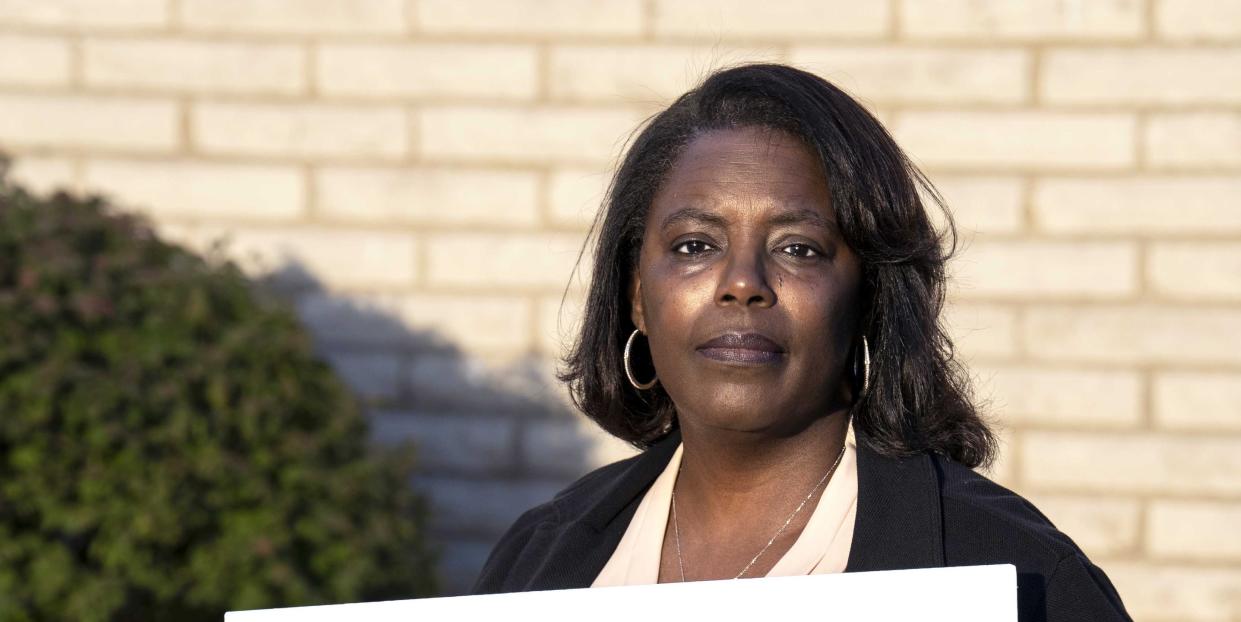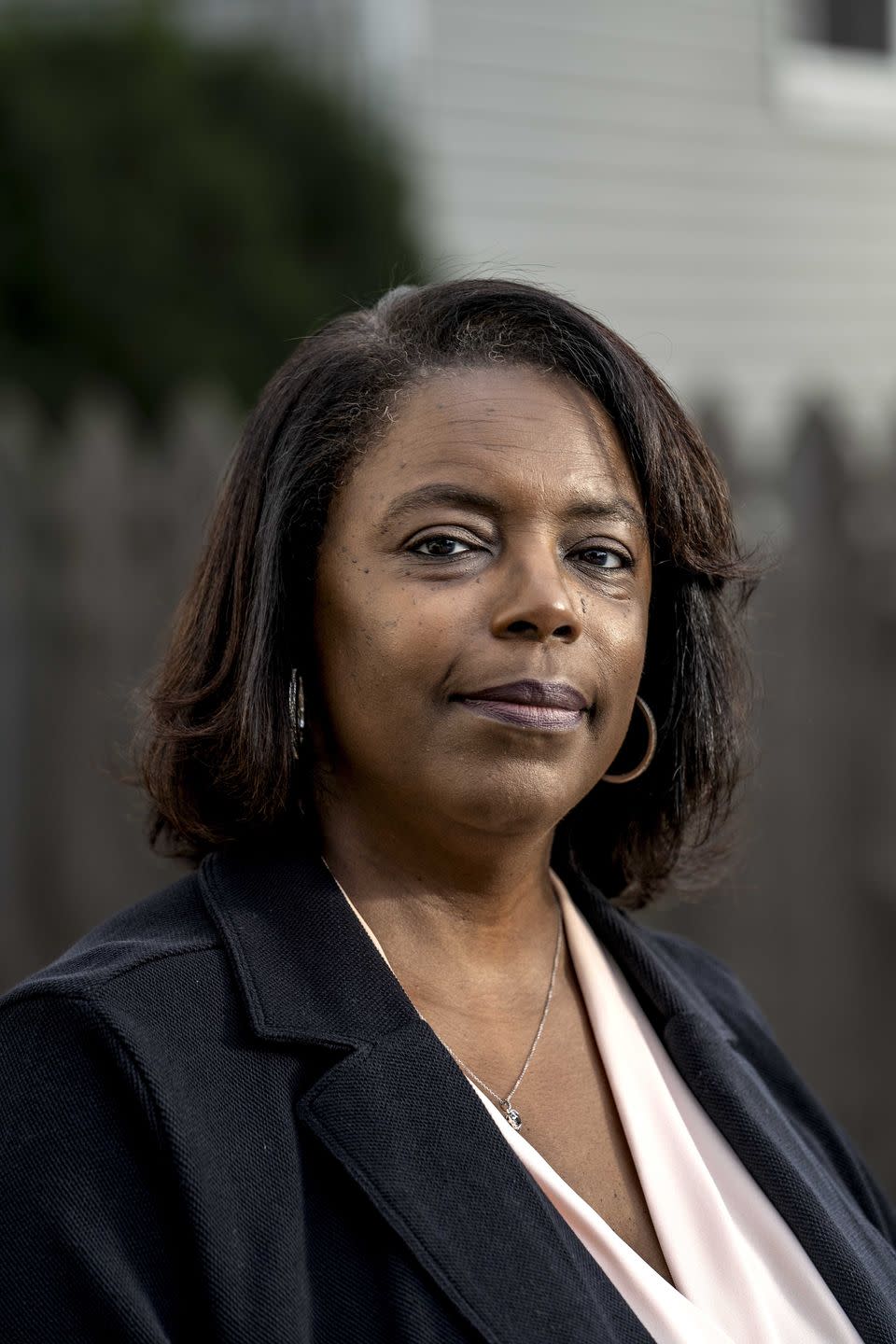I Have Lupus—and It Makes Me Angry Because Nothing “Makes It All Better”

It’s the everyday things that I miss being able to do. I miss my workouts and my running group; I miss having the energy to socialize with friends whenever I want; and I miss being able to keep up with my husband and kids on vacation. Heck, even something as simple as not being able to clean my home can bring me to tears. It’s maddening that my pain and fatigue prevent me from doing so much. It’s like my life was interrupted and I’m angry with my body for making a decision without discussing it with me.
This story is part of Prevention’s We Are Not Invisible project, a series of personal and informative stories that shed light on those with Invisible Disabilities in honor of Invisible Disabilities Week 2022.
But it didn’t happen all at once. It took many years for my constellation of symptoms to develop and for doctors to diagnose what I was experiencing. I know now that I have a litany of illnesses that often go together and have overlapping symptoms: lupus, Sjogren’s syndrome, osteoarthritis, and fibromyalgia. In my 20s, I had two miscarriages, and when I did have my son and my daughter two years apart, I had very difficult pregnancies that required months on bedrest. (Pregnancy complications can be common in people with lupus.) I also developed migraine. Still, I didn’t question whether any of these issues could be connected.
Figuring out what was wrong
At one point, I had severe pain on my right side under my rib cage and an ultrasound revealed that I had swelling around my gallbladder. My primary care doctor thought I might have lupus (an autoimmune disease where the immune system attacks the body’s tissues and causes inflammation and pain in places like the joints and organs), and suggested I see a rheumatologist. Frustratingly, that rheumatologist took one look at me and saw that I didn’t have a rash (which is characteristic of only some types of lupus) and told me I didn’t have the disease.
Eventually, my migraine attacks flared and my primary care doctor referred me to a neurologist. This turned out to be the second time a doctor thought I might have lupus but I couldn’t afford to pay for the full testing so I didn’t receive a diagnosis.
It wasn’t until my early 40s, when I was hospitalized with sepsis and what doctors believe was a kidney infection, that testing officially revealed that I had both lupus and Sjogren’s syndrome (another autoimmune disease in which the immune system attacks the body’s cells, tissues, and organs). Getting an umbrella diagnosis—instead of dealing with each symptom separately—meant that I was finally put on medication to protect my organs and alleviate some of my pain and swelling. But there is no medication or lifestyle adjustment to make it all better. The fatigue, joint pain, and side effects from the medications are constant and they all impact my ability to be an attentive friend, a present mother, and an involved wife. It even impacts my ability to feel good about myself. I often hide behind the fact that I don’t look sick, but there's a lot of faking it with invisible diseases, and that alone can be exhausting.
In the last several years I’ve also developed fibromyalgia (a disease that causes widespread pain, fatigue, irritable bowel syndrome, migraine, depression, and more). It’s often triggered by having other infections and physical and emotional stress, so it’s not surprising that it’s on my list of diagnoses. But like my other illnesses, I’ve had to learn to manage. For instance, I know that if I don’t get about eight hours of sleep each night, I won’t be able to get through the next day. I also know that I must listen to my body, and sometimes that means backing out of plans unexpectedly, which pains me. But if I push myself too much, I could end up in the hospital.

Living with lupus
I would probably feel even more discouraged if I wasn’t self-employed and able to work around my symptoms. I’m a licensed clinical professional counselor, and in my previous job, I worked at an insurance company helping patients coordinate their care. That required me to go into people’s hospital rooms and homes while they were sick and help them with their medical needs, which I loved doing. But it also exposed me to diseases that my crazy immune system couldn’t shake. So I had to resign from that job. I’m fortunate, though, that now I’m able to work as a therapist in private practice, virtually and in person. The flexibility I have with my schedule makes it possible for me to be there for my clients and take care of myself.
I try not to let my kids see me when I’m at my worst. They’re in their 20s now, but I still don’t want them to worry about me. Thankfully, my husband watches out for me and is often the one telling me to work less or take it easy, which I appreciate. Going through all of this has actually brought us closer and reminded us of how short life is. So we’re treasuring our time together.
Back to the We Are Not Invisible project
You Might Also Like

